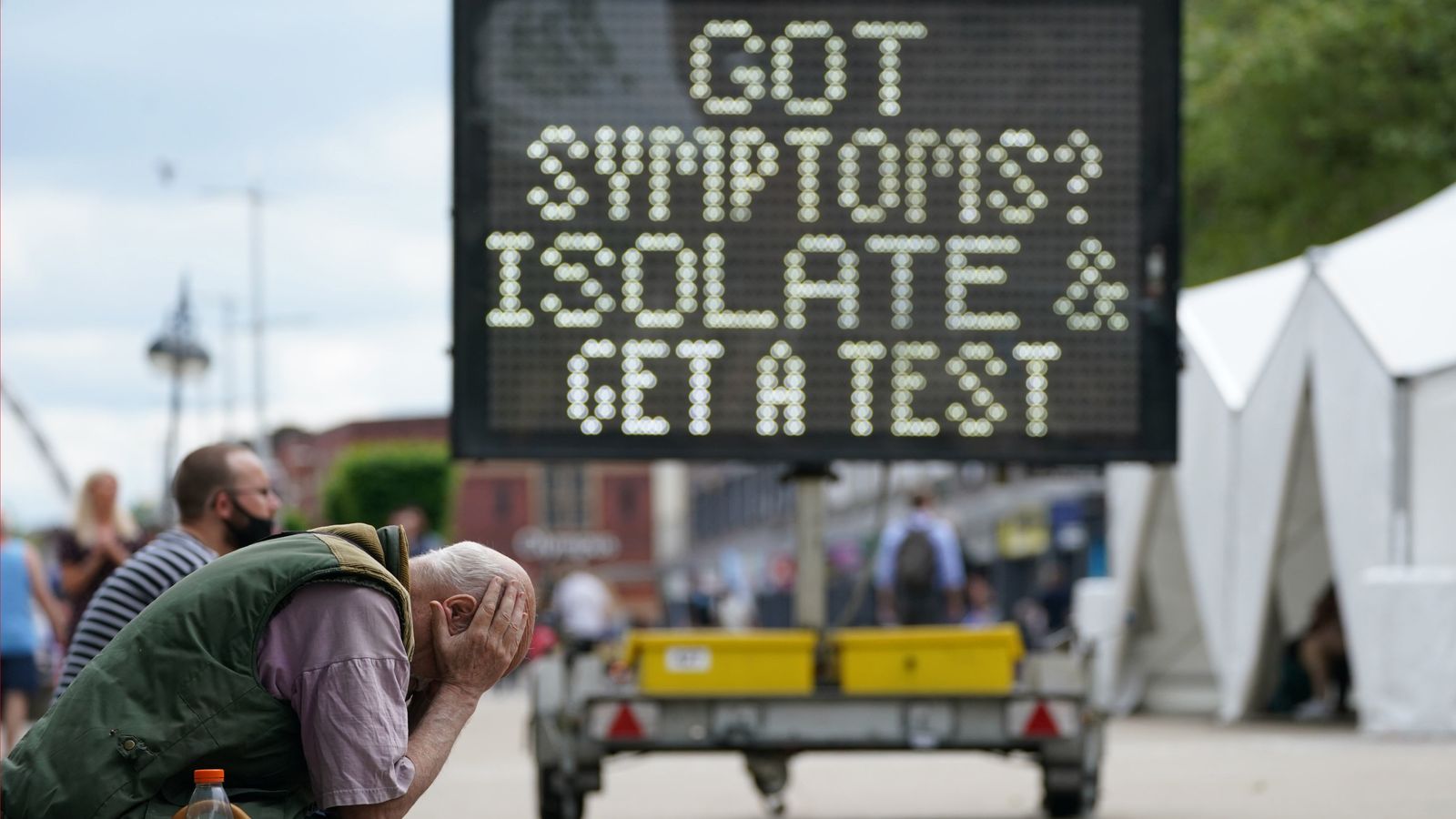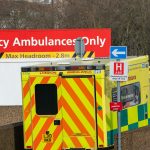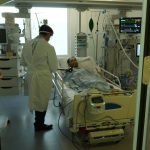The prime minister says the effectiveness of the vaccine rollout will determine whether the 21 June lockdown lifting can go ahead – as the UK reported the highest number of daily COVID cases in four months.
Another 7,540 coronavirus infections were recorded in the latest 24-hour period – the most since 26 February.
Boris Johnson said: “Everyone can see very clearly… that cases are going up, and in some places hospitalisations are going up.”
Referring to so-called “freedom day” on 21 June, he said the government had to assess how much the vaccine rollout had “built up enough protection in the population in order for us to go ahead to the next stage”.
“That’s what we’ll be looking at and there are arguments being made one way or the other, but we’ll be driven by the data and be looking at that and we’ll be setting it out on Monday.”
Live COVID updates from the UK and around the world
Six further COVID-related deaths were also reported in the government’s daily data.
The figures compare with 6,048 cases and 13 deaths announced yesterday, and 4,330 cases and 12 deaths this time last week.
Meanwhile, government data also showed another 136,802 people had a first dose of a vaccine on Tuesday, and 313,482 had their second dose.
The number fully vaccinated now stands at 28,540,844, while 40,710,319 have had at least one jab.
The NHS said more than a million vaccine slots were booked on Tuesday – a record – after over-25s became eligible for the jab.
It comes as around eight in 10 people in the UK are now believed to have coronavirus antibodies – either from having the virus or getting vaccinated, according to the Office for National Statistics.
The number of people in hospital with COVID has increased about 10% in the last week as the more transmissible Delta, or Indian, variant spreads.
On 31 May, the number was 921 but rose to 1,024 hospitalisations on 7 June – the latest day for which figures are available.
Some 154 people are on mechanical ventilation to help their breathing.
However, the number in hospital is much lower than during the peak of the second wave in mid-January when it reached more than 39,000.
At that same time, average daily cases also peaked at about 60,000.
The link between rising cases and hospitalisations and deaths will be a key consideration for ministers deciding whether to proceed with scrapping most remaining restrictions on 21 June.
With more areas taking greater action to identify Delta variant cases, a leading scientist has warned of the risk of a “substantial third wave” in the UK.
Please use Chrome browser for a more accessible video player
Professor Neil Ferguson, whose modelling was key to the first lockdown, said his assessment was based on new data submitted to the government.
But he also said it suggested a third wave may not be as severe as the previous spike in winter.
Speaking on Wednesday, he said: “Basically it (the modelling) is saying there is a risk of a substantial third wave, (but) we cannot be definitive about the scale of that – it could be substantially lower than the second wave or it could be of the same order of magnitude.
“That, critically, depends on how effective the vaccines still are protecting people against hospitalisation and death against the Delta (Indian) variant, as well as a few other unknowns.”
The data was compiled by SPI-M – a subgroup of government advisory body SAGE.






















